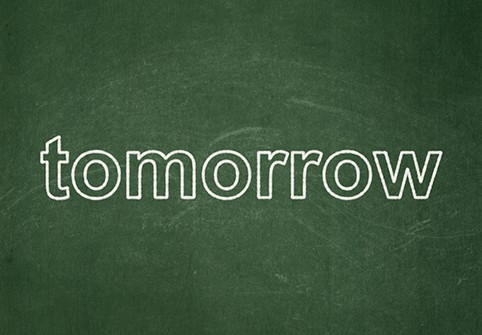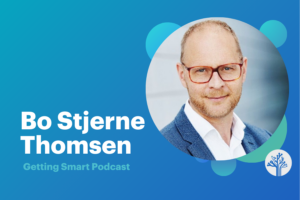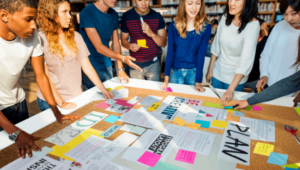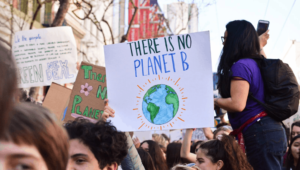Tomorrow Isn’t Tomorrow, It’s Today

At the end of Macbeth, Shakespeare’s troubled king looks ahead to his “tomorrow and tomorrow and tomorrow” as something that “creeps at this petty pace.” Nothing could be further from how I feel about tomorrow, the future, in the present day. If anything, our tomorrow seems to be rushing at us with increasing intensity, before we have time to understand what’s coming, and soon it has passed into yesterday. As a result, we no longer have the luxury of settling into change before the future smacks us with something new yet again.
As educators, we see ourselves as preparing children of today for their own tomorrows. Thus, we must face an urgent obligation to stare down that future and figure out what it means for our current practice. We must ask ourselves, “What can teachers do in the more immediate, literal tomorrow of their classrooms to meet the future head on?”
How did tomorrow get here so soon?
We learned that “the world was flat” from Thomas Friedman in 2005 and recognized the need for adopting an increasingly global perspective in education. We learned how “information is ubiquitous” from Michael Wesch in 2008. Thus, we realized that our relationship to the content we teach must change to account for the facts so easily accessible at our students’ fingertips. We learned about our “cognitive surplus” from Clay Shirky in 2010, who helped us see the potential for creative collaboration in a connected world, and we began to envision ways to aggregate our imaginations for the common good.
In the last decade, even as we might question some changes wrought by the digital age, we have had to face the hard facts of our changed and changing world. Change, whatever form it takes, doesn’t proceed backwards, as Wesch tells us. Fellow educators, it’s time we mourned our losses, accepted our present, and moved on. If we do not, we risk leaving our students to figure out the world for themselves at a time when they may need us the most.
Getting started by letting go…
Old habits of mind die hard — especially for veteran teachers who have spent entire careers honing their craft. In my own practice, I have struggled with letting go. Marc Prensky told us a decade ago that our students, as digital natives, have leapt to doing new things in new ways. Yet we teachers sometimes work ourselves into crazy contortions over the old things we think we can’t live without. This year, as I adopted Google Classroom, for instance, I could finally envision a nearly paperless learning space. Now I ask myself why I have spent so much precious time on printing, collecting, and returning paper copies of essays (and asking students to spend time on this as well). As a result, I’ve begun to question holy ground: the writing process approach to teaching English. Horrors, I’ve even questioned why we ask students to double space.
Alan November is fond of telling teachers that they are working way too hard, running in place to keep up with the latest research in order to spoonfeed an education to their students rather than teaching their students the skills needed to mold their own learning. Yet, it has only been in the past few years that I have learned to provide a structural narrative for my students, supplemented by practice in the skills required for independent learning, and let the students begin to construct their learning for themselves.
And, lest we become too smug about the shifts we think we’ve made, Alfie Kohn challenges the progressive educators who frequent his blog to question their practice and think again. He wrote:
There are few barriers to change as intractable as the belief that one doesn’t need to change. When some teachers hear about a nontraditional curriculum or pedagogical approach, they instantly respond, ‘Oh, I’m already doing that.’ And sometimes they are…sort of, but not entirely.
Because the changes we need to adopt don’t come naturally to those of us trained in another era, we must constantly remind ourselves to shift and shift again.
Look ahead now!
Tony Wagner tells us, “The world doesn’t care about what you know. What the world cares about is what you can do with what you know” (quoted in Forbes, 2012). As educators, we must shift from a focus on content to a focus on curation, from disseminating a previous century’s idea of knowledge to cultivating the skills of searching, synthesizing, discerning, and making. We must translate the classroom into a laboratory, garden, or playground — pick your metaphor — of innovation.
What are the practical applications we can take back to our students and colleagues? In my next post, I plan to share new ways of teaching and learning for the future that every teacher can take back to the classroom tomorrow.
For more blogs by Susan Lucille Davis, check out:







Maria Flaherty
Susan,
Loved your article. It's a great discussion starter for educators.